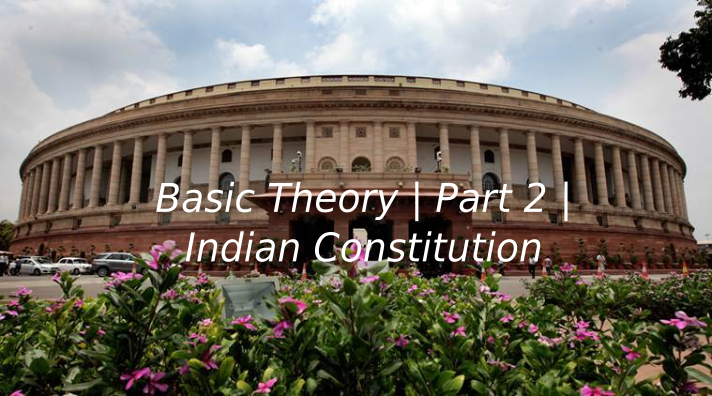Q1. Which part of the Constitution is inspired by the Irish Constitution ?
Ans. Th Part IV of the Indian Constitution on Directives Principles of State Policy is inspired by the Irish Constitution.
Q2. What are the provisions under the 73rd and 74th Constitutional Amendment ?
Ans. By virtue of the 73rd and 74th Constitutional Amendment Act, 1993, Part IX and Schedule XI were added to the Constitution. These amendments provide the framework fo rht establishment and election of Panchayats and Municipalities.
Q3. What are the provisions under the Part XIV of the Constitution ?
Ans. The Part XIV of the Constitution contains provisions regarding service matters of personnel appointed to public services under the Union and States and the provisions on the establishment and functions of Public Service Commissions.
Q4. What are the provisions under the Part XIV-A of the Constitution ?
Ans. Part XIV-A of the Constitution contains provision on the setting-up and functioning of Administrative Tribunals for the adjudication of matters thereunder.
Q5. What are the provisions under the Part XV of the Constitution ?
Ans. Part XV of the Constitution contains provisions on the conduct of elections and concerned authorities thereof.
Q6. Write the distinctive features of Indian Constitution ?
Ans. The Indian Constitution has the following distinctive features:
- The Constitution of India is the lengthiest, detailed, elaborate Constitutional document the world has so far produced.
- It consists of 395 Articles though many articles were added subsequently and some were repealed by way of amendments. The additions have been given alpha numeric enumeration alongside the original article.
- Originally the Constitution consisted of 8 Schedules; now it has 12 Schedules.
- The Constitution of India provides for the organization, structure and functioning of not only Central Government organs, but also of the organs of the State Governments.
- It contains a detailed framework on fundamental rights, fundamental duties, functions and powers of the Executive, functions and powers of the Parliament, Judiciary and judicial appointments, official language, citizenship, emergency provisions, etc.
- Detailed provisions were incorporated in the Constitution to address issues concerning the Scheduled Castes and Tribes, Backward Classes, Religious and Linguistic Minorities etc.
- The Directive Principles of State Policy outlines in Part IV of the Constitution shall not be enforceable in any Court, but nevertheless are fundamental in the governance of the country and shall be the duty of the state to apply these principles in making laws.
Q7. What is the role of Preamble in the Constitution of India ?
Ans. The Constitution of India starts with its Preamble. The Supreme Court of India in the Fundamental Rights Case (Keshvananda Bharati v. Union Of India, 1973 SC 1461) held that Preamble does form part of the Constitution. The objective specified in the Preamble contain the basic structure of the Constitution. The Preamble is the guide to interpret the provisions of the Constitution.
Q8. What does the word “Sovereign” signify in the Preamble of the Constitution ?
Ans. The word Sovereign denotes that India is not subject to any external authority and that India as a state has the power to legislate on any subject in conformity with Constitutional limitations.
Q9. What does the word “Democratic” signify in the Preamble of the Constitution ?
Ans. The word Democratic signifies that India is responsible parliamentary for of Government, which is accountable to the elected legislature.
Q10. What does the word “Republic” signify in the Preamble of the Constitution ?
Ans. The word Republic denotes that the head of the state is an elected person and not a hereditary monarch. Any Indian without any discrimination as to the caste, creed and religion can contest for Presidential elections and can occupy the office provided he fulfills the eligibility conditions as provided by the Constitution.
Q11. What does the word “Socialist” signify in the Preamble of the Constitution ?
Ans. The word “Socialist” was added by the Constitution (forty-second Amendment) Act, 1976. The term is not defined in the Constitution. In general it means a system under which the means of production and distribution are State owned. The Supreme Court in the case of S.R. Bommai v. Union of India (AIR 1994 SC 1918) held that the principal aim of socialism is to eliminate inequality of income, status, standards of life and to provide a decent standard of life to working people.
Q12. What does the word “Secular” signify in the Preamble of the Constitution ?
Ans. The word “secular” shows the following significance in the Preamble of the Constitution:
- The preamble establishes India as a Secular State. India is a country of multifarious religions, beliefs and sects. Its people profess and practise different religions.
- But India as a Union of states has no official religion. There is no state-recognized place of worship. The state does not favour any particular religion.
- State laws and policies prohibit any discrimination on the grounds of religion. It treats all religions equally and confers protection to citizens to profess, propogate and practise their religion.
- It treats all religions equally and confers protection to citizens to profess, propogate and practise their religions.
- The word “secular” was added by the Constitution (forty-second Amendment) Act, 1976.
- Even before the Amendment, operation of the concept of secularism was visible in the Fundamental Rights and Directive Principles.
- This has also been given the status of Basic Structure of the Constitution in Keshvananda Bharati’s case.
****************************

Thanks
LikeLike
Most welcome 👍
LikeLike
Thanksgiving
LikeLike
Most welcome 😊👍
LikeLike